I don't know if the title of the post is the appropriate. I have the following table

and an Array in php with some items, parsed_array. What I want to do is to find all the SupermarketIDs which have all the items of the parsed_array.
For example, if parsed_array contains [111,121,131] I want the result to be 21 which is the ID of the Supermarket that contains all these items.
I tried to do it like that:
$this->db->select('SupermarketID');
$this->db->from('productinsupermarket');
for ($i=0; $i<sizeof($parsed_array); $i++)
{
$this->db->where('ItemID', $parsed_array[$i]);
}
$query = $this->db->get();
return $query->result_array();
If there is only one item in the parsed_array the result is correct because the above is equal to
SELECT SupermarketID
FROM productinsupermarket
WHERE ItemID=parsed_array[0];
but if there are more than one items, lets say two, is equal to
SELECT SupermarketID
FROM productinsupermarket
WHERE ItemID=parsed_array[0]
AND ItemID=parsed_array[1];
which of course return an empty table. Any idea how can this be solved?